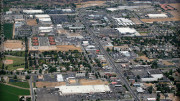I recently discovered the Veil and a Dark Place blog by an ex-Muslim woman. Here is part of a piece from there that touches on how, in Islamic societies, the social control of women is so complete that Muslim women can feel that they do not own, or control their own bodies. She said in Islamic culture a woman’s body ‘was meant to be hidden away, unadorned, insignificant, unnoticeable, worthy only for the restricted use of others.’
‘A veil and a Dark Place’ said:
“It is true that I now own my body in ways I always should have had and was never given the right to. It is true that I’ve had some time and space to adjust—I’ve been in the US for about a year and a half now, and am surrounded by supportive and loving people, people of great wisdom and understanding. But still, I find that these challenges of self-making take up most of my thought and energy, and have led me to make drastic life changes, including quitting my job teaching college to attempt to make a living doing freelance work in the safety and flexibility of my own home instead, just to safeguard my health from the stress of academia. This struggle is borne too, I think, by many people who for a plethora of reasons feel hostile in their own bodies, but I’ve noticed that it is one that many of my Ex-Muslim sisters contend with post-Islam, and can trace its effects to the smothering influence of bodily regulation inherent in many Muslim codes of living.
There is hardly a time in my memory when my body has not been shrouded in the loose, flowing clothing of the conservative form of hijab espoused by my culture. I started wearing it when I was a child of 8, and wore it for fifteen years. I’ve written about this before, but inherent in wearing the hijab in my family’s from of Islam was a behavioral code of modest bodily interaction and conduct, even at home, that hypersexualized and shamed my body and at the same time suppressed and made my body invisible, all beyond the obscuring nature of the wide, loose clothing. I never learned to think of my body as perceivable, my own thing that I could love and take pride in, whose appearance and style I could control and create for myself; ever it was meant to be hidden away, unadorned, insignificant, unnoticeable, worthy only for the restricted use of others.
And now, I’m consistently hyperaware of it.
I obsessively adjust my clothes and touch my hair and skin in public, certain that there is something terribly amiss with these ways in which I am presenting my body. I watch everyone around me very closely, and notice that, even with the body-shaming misogyny that structures many American cultures, nobody does the same obsessive self-checking with anything resembling comparable frequency. I recognize that I am still out of touch with the reality of being an actually visible human subject, one who interacts and can interact with others. I have never dressed my body to be visible and have rather tried my best to obscure it with cloth. Beginning to play dress-up as an adult, it is hard for me to assess whether I’m wearing something incredibly trashy and ugh or just showing a normal amount of skin. I feel like everyone can see through my obvious discomfort with my body and my ignorance regarding how to dress it.”
If you want to read the rest of this article by this brave and outspoken writer then her blog can be found here:
http://aveilandadarkplace.com/2014/03/12/what-it-is-like-to-be-an-ex-muslim-woman/
She said in her article that she appreciates the support that she has had from friends in the United States and that underlines just how important it is for non-Muslims to support ex-Muslims and those contemplating leaving Islam. Islam is an ideology that removes all vestiges of rights to a woman’s own body and for that among other reasons is not a religion of peace and justice.







http://www.dailymail.co.uk/news/article-2583243/Islamic-teacher-sexually-abused-girl-11-taught-Koran-spared-jail-hes-benefits-wife-doesnt-speak-English.html
Another appalling case, another victim of Islamic misogyny.